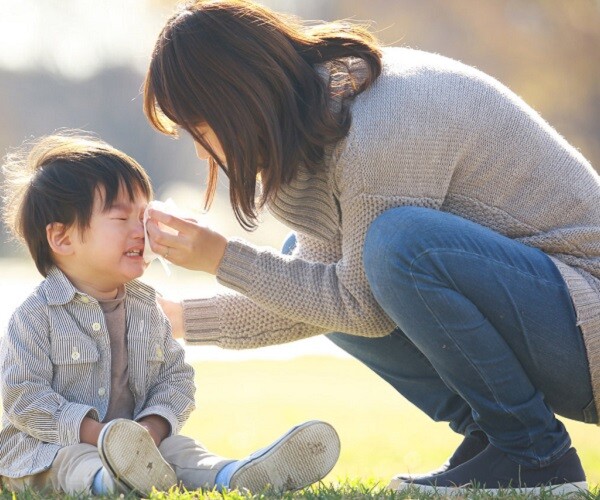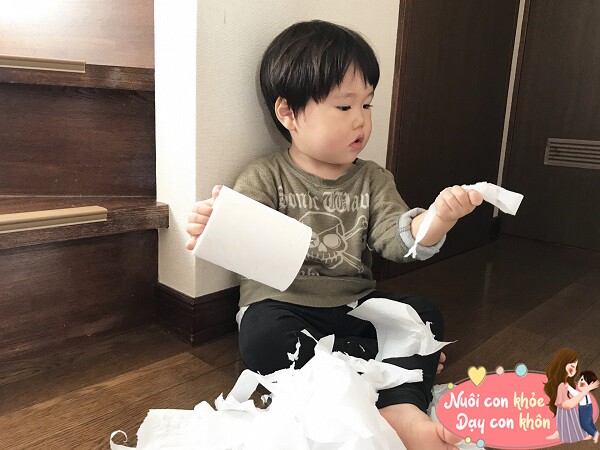This means that adolescent behavioral habits, ways of thinking, and personality traits have stabilized and are not easily changed.
But before that, children will go through three transitional stages of behavioral habits and personality traits due to the rapid development of the brain and body.
These three transitional stages usually occur at the ages of 3, 7, and 10. Children at these ages can easily make parents feel that their children are “naughty” and “mischievous,” but in fact, this is just a “side effect” of their children’s growth.
If parents can understand the psychological needs and desires behind their children’s “misbehaviors” and “mischief” and respect their maturity, they can avoid many problems.
Therefore, during the three most important transitional stages of a child’s life, parents should pay attention to proper management.


3-Year-Olds: Mischievous and Stubborn
From birth to age 2, this may be the most well-behaved and adorable time in a child’s life.
However, as the child’s brain and body develop, they will become more aware of the outside world, their self-awareness will increase, and they will want to do whatever they please.
Therefore, during the period from ages 2 to 4, the child’s emotions will enter their first period of instability, which can also be described as their first period of rebellion.
Children at this stage can sometimes be very “greedy.” If they see a toy they like, whether it belongs to them or not, they will cry and make a fuss until they get it.
Sometimes, they can be very “independent” and dislike being touched by others, always saying, “Leave me alone,” “Go away,” or “No.”

3-Year-Olds: Mischievous and Stubborn.
Why does this happen?
3-year-olds begin to have a strong sense of self-awareness and become very competitive, always wanting everything to go their way.
However, 3-year-olds do not yet know how to express their emotions effectively.
For example, a child may want to eat with their hands, but the mother insists on giving them a spoon. The child is unhappy but does not know how to express this unhappiness, so they cry and throw a tantrum.
So, how should parents deal with a 3-year-old exhibiting these behaviors?
Tap into the Child’s Competitive Nature
If a mother says to her child, “Look at all the toys you’ve thrown around. Quickly, pick them up and put them back in the box!” the child might typically ignore her or do so very slowly and reluctantly.
However, if she says something like, “It looks like you don’t want to play with these toys anymore. Let’s see who can put the most toys back in the box the fastest!” the child will usually be very enthusiastic.
This is because, at this stage, children love to compete and interact with their parents.
A Democratic Approach May Not Be the Most Effective
Mothers know that when it comes to educating their children, it is important to not be too “dictatorial.” Instead, they should consider the child’s emotions, seek their input, and take a democratic approach.
However, an overly democratic approach may not be suitable for 3-year-olds, and the educational outcomes may not be ideal.
A better way is to give the child two choices, so they feel they have some control over the situation.
For example, if the child doesn’t want to go to sleep because they are watching TV, the mother can say, “It’s 10 o’clock already. It’s very late. Do you want to take a bath first or drink some milk first?”
This way, the child is more likely to choose one of the options, which is better than directly turning off the TV.

7-Year-Olds: Argumentative
After the first period of rebellion, children enter a period of stability for about two or three years, during which they behave relatively well and are lively and sensitive.
However, around the age of 7, many children start primary school. This new environment, new peer group, and new knowledge initiate a new cycle of brain and body development.
Therefore, at this stage, children enter their second period of rebellion, which can last until they are about 9 years old.
Children at this stage feel that they have matured and want to make more decisions independently, so they often clash with their mothers.
For example, whether it’s doing homework or any other task, children at this age often develop bad habits of laziness and procrastination, and no amount of scolding seems to change this behavior.
They also love to be part of a “gang” and are always running, jumping, playing, and making noise with their friends, sometimes even forgetting to do their homework or eat.
What’s more, no matter what the mother says, the child will argue and talk back. So, how should parents educate their children at this stage?

7-Year-Olds: Argumentative.
Accept the Child’s Cheerful Nature
At this stage, children feel that their parents are constantly forcing them to do things and that they have no freedom.
7- and 8-year-olds are naturally energetic and noisy. They need to play with their friends to release their excess energy, learn how to navigate interpersonal relationships, and form their own small social circles.
If parents frequently use excuses like “You’re being naughty” or “You’re being mischievous” to suppress and oppress their children, the children will feel very discouraged, and conflicts between parents and children are sure to arise.
In fact, as long as the children complete their homework and are not in any danger, parents should not intervene too much in their playtime.
Be a Good Role Model for “Playing Well” and “Studying Well”
When children enter primary school, one of the things parents worry about the most is their academic performance. To encourage their children, parents often say something like:
“Look at your friend A. They do their homework right after school, unlike you, always playing around.”
However, in reality, this “motivational” approach emphasizes how much time is spent on homework rather than the effectiveness of doing it. Over time, children can easily develop lazy habits and become procrastinators.
Instead, fathers can say something like, “All your classmates have finished their homework and are out playing. You should also finish your work neatly and then go out and play happily.”
Protect the Child’s Self-Esteem and Eliminate Negative Emotions Caused by Poor Performance
For example, when a child is not good at math, they will feel very upset. If the parents continue to scold them, the child may become more rebellious and less confident in math.
A better approach is to use examples from the parents’ own childhood experiences to guide the child step by step.
“I’ve never told anyone this, but when I was in elementary school, I once got a D in math. I know you’re trying your best, and I’m proud of you.”
This way, it will be much easier to guide the child in the right direction.

10- to 12-Year-Olds: Anxiety and Premature Adulthood
Adolescence is truly a beautiful stage. The child’s body has gone through changes, their thinking has matured, and they have gained a sense of independence.
But why do many parents think of “rebelliousness” and “disobedience” when they think of their adolescent children?
In fact, the emotions of an adolescent being scolded are very similar to how we felt when we were children and were scolded by our parents.

10- to 12-Year-Olds: Prone to Rebellion.
Adolescents have started to change and think more like adults. They crave respect, a little space, and some secrets of their own, and they want to be treated democratically.
At this stage, if parents continue to use similar controlling methods, the children will surely rebel and develop a rebellious mindset.
When children enter adolescence, one of the most important things parents need to do is to gain their children’s agreement through understanding and respect.
Once this is achieved, it will be easier to resolve issues related to their studies and daily life.
The 4 Types of Praise That Boost Kids’ Confidence and Intrinsic Motivation
Praise from parents is a powerful motivator for children to strive for excellence. When children receive genuine and specific recognition for their accomplishments, it boosts their self-esteem, encourages a growth mindset, and fosters a positive parent-child relationship. This type of praise serves as a catalyst for children to continue pushing themselves to new heights and develop a strong sense of self-worth.
“The 3-Pronged Approach to Parenting: Nurturing Well-Rounded and Successful Children”
As parents, we all aspire to raise our children to be successful and well-rounded individuals. However, it is important to recognize that traditional textbook education may not always be the best approach for our little ones. It is crucial to explore alternative methods and tailor our teaching strategies to suit their unique needs and learning styles. By embracing a diverse range of educational tools and embracing each child’s individuality, we can empower them to reach their full potential and thrive in their own unique way.




































